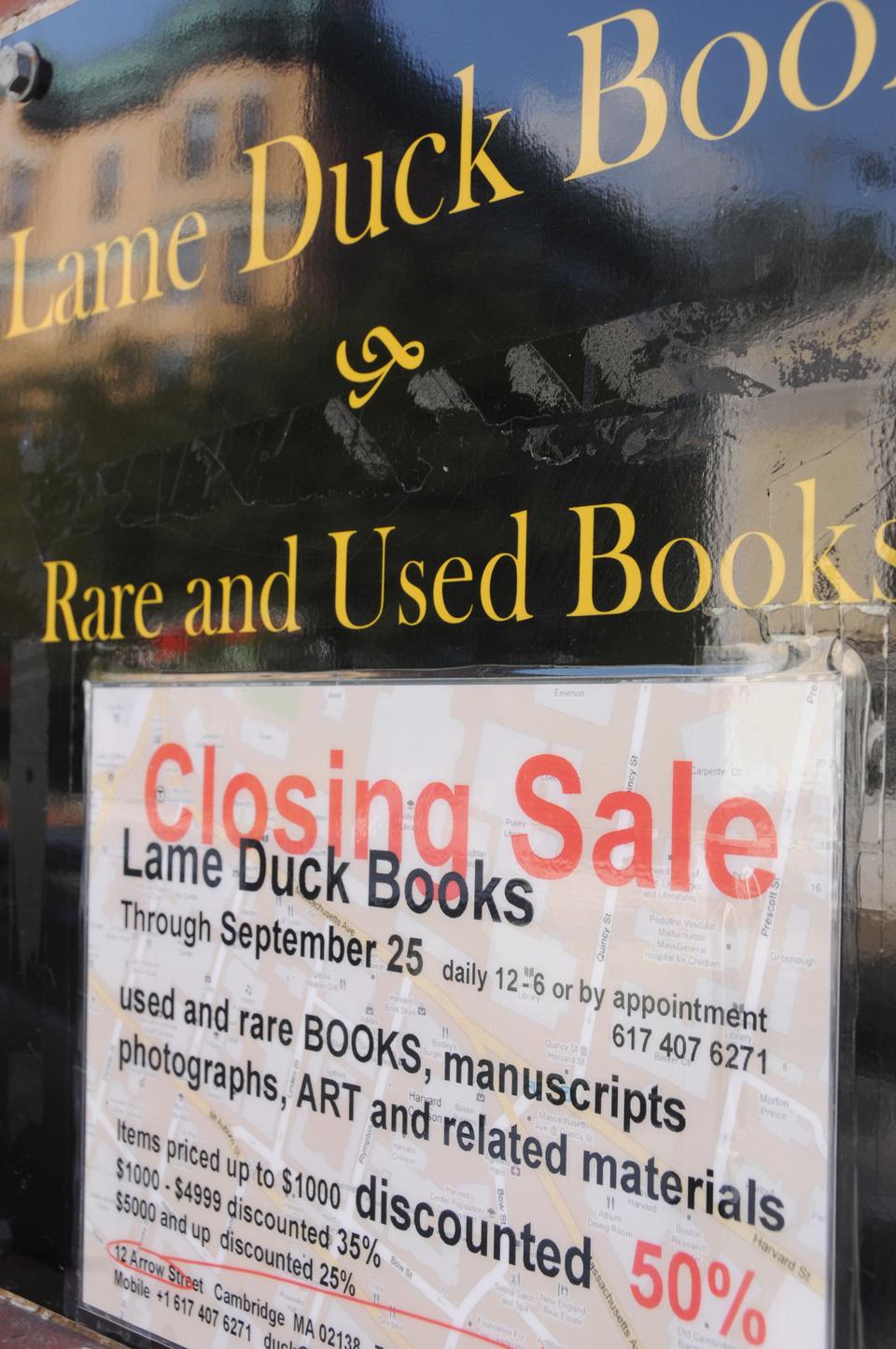
News
‘Deal with the Devil’: Harvard Medical School Faculty Grapple with Increased Industry Research Funding

News
As Dean Long’s Departure Looms, Harvard President Garber To Appoint Interim HGSE Dean

News
Harvard Students Rally in Solidarity with Pro-Palestine MIT Encampment Amid National Campus Turmoil

News
Attorneys Present Closing Arguments in Wrongful Death Trial Against CAMHS Employee

News
Harvard President Garber Declines To Rule Out Police Response To Campus Protests
Lame Duck Books To Close Shop
The antique bookstore plans to close Sept. 25, citing online competition

After juggling his business of selling rare books for more than 25 years, John W. Wronoski will be closing the doors to his bookstore in Harvard Square on September 25.
Faced with an operation that was “hemorrhaging” money, the owner of Lame Duck Books on 12 Arrow Street first announced his closing sale in late July.
Wronoski blamed his virtual competitors in the online bookselling markets for “destroying” the trade of purchasing rare books in person.
“Nowadays people like myself who’ve devoted...50 years to this world have no means of competing again,” he said.
Wronoski first opened Lame Duck Books in Philadelphia in 1984, before moving to Harvard Square. The store is known for its used and rare books, manuscripts, photographs, and artwork priced in the upper thousands.
“It was a way of earning an income without actually doing something that I considered odious, like work,” he said. “Not that you don’t work an enormous amount in this, but it’s completely pleasure.”
But Wronoski was careful not to label himself a bibliophile because he rejects a personal relationship with books.
“I maintain custody of these fabulous objects until the right person comes along to relieve me of them,” he said.
The first rare books Wronoski acquired were purchased from his colleagues. He thought the books were under-appreciated, and that he could buy and sell them to people who would value them more.
Wronoski said that his collection for the store grew slowly with books he described as “very important,” even selling the first editions of “culturally momentous” books.
One such example was Wronoski’s favorite book in the store: a copy of the first English edition of T.S. Eliot’s “The Wasteland.” The edition was printed by Virginia Woolf and contained an inscription from Eliot to Paul Valéry, one of Eliot’s chief literary antecedents, according to Wronoski.
After pursuing this particular copy for over a decade, Wronoski purchased the book for $115,000. His price for Lame Duck customers: $350,000.
“For me, money is so much less interesting than these objects,” Wronoski said. “I’m selling the best thing that you could possibly buy.”
—Staff writer Xi Yu can be reached at xyu@college.harvard.edu.
Want to keep up with breaking news? Subscribe to our email newsletter.
